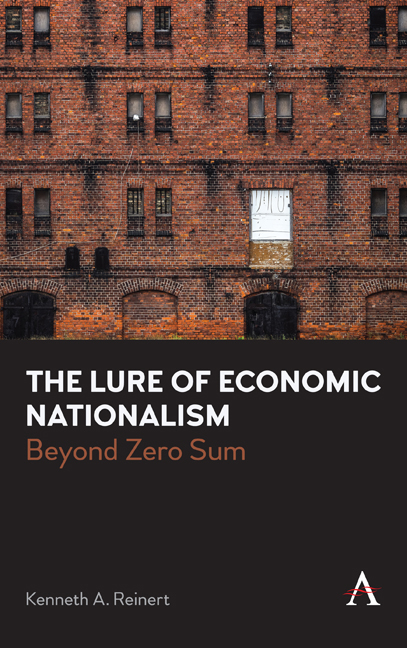Book contents
3 - Industry and War
Published online by Cambridge University Press: 28 February 2024
Summary
After the mercantilist era, economic nationalism became intertwined with industry or manufacturing, and the two have been remained so ever since. This fact was not lost on one of the founders of the field of modern political economy, Robert Gilpin, who notes:
For several reasons, the foremost objective of nationalists is industrialization. In the first place, nationalists believe that industry has spillover effects (externalities) throughout the economy and leads to its overall development. Second, they associate the possession of industry with economic self-sufficiency and political autonomy. Third, and most important, industry is prized because it is the basis of military power and central to national security in the modern world.
As we will see in this and subsequent chapters, these perspectives on manufacturing are limiting and tend to lead to conflict, something that Gilpin also notes. Further, the focus on industry turns out to be somewhat misplaced, and we need to take some time to see why.
What became known as the “Industrial Revolution” first took place in Britain or, more precisely, in the north of England. The initiating sector was the one we discussed in the previous chapter, namely, cottons. The initiating innovation was the flying shuttle, which, beginning in 1735, doubled pro-ductivity in weaving. Subsequent innovations took place in spinning. It is worth remembering that, up until the mid-eighteenth century, China and India accounted for approximately one-third and one-quarter, respectively, of global manufacturing output. Britain was playing catch-up but did so in a manner that surpassed these two previous loci of global manufacturing expertise. Eventually, these innovations had significant growth and wage effects in Europe. Exactly when this took place is a matter of debate, but it is located somewhere in the mid-nineteenth century.
Recall from Chapter 2 that the woolens sector in Britain successfully agitated for protection from cotton goods. This increased the incentives for domestic cotton goods production and innovation, including the introduction of a cotton–linen blend known as fustian that escaped the ban on cotton products. Steam power became central to the innovation processes as well. Importantly, innovations were not confined either to specific products or to specific countries. As noted by economic historians Ronald Findlay and Kevin O’Rourke, “the technical innovations that were first made in cotton were applied to the woolen, linen, and silk industries as well.”
- Type
- Chapter
- Information
- The Lure of Economic NationalismBeyond Zero Sum, pp. 25 - 42Publisher: Anthem PressPrint publication year: 2023



